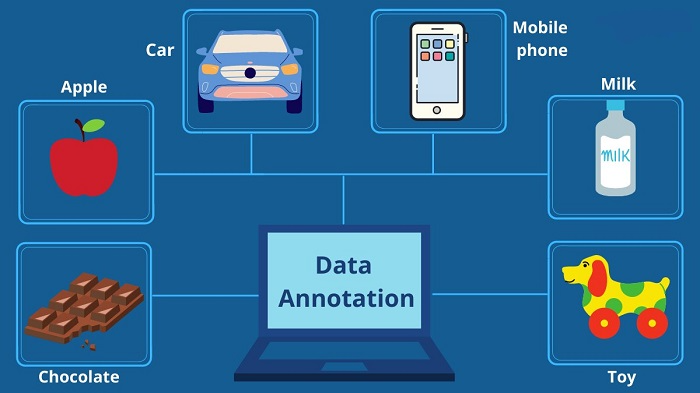The growth of AI and ML technologies has created a demand for data annotation. It is a process critical to training AI models. Companies offering data annotation services have become global. It is often promoting opportunities for remote workers to earn income. If you’re thinking about working with or investing in data annotation tech. Then the big question remains: Is data annotation tech legit?
Let’s check the legitimacy of data annotation tech. Also the industry’s role and how to navigate the space confidently.
What is Data Annotation?

This is the process of labeling or tagging data. Through images, text, video or audio. To make it understandable for AI systems. This data is then used to train algorithms. For tasks like facial recognition, natural language processing, autonomous driving and medical diagnostics.
For example:
Text Annotation: Highlighting keywords. Or tagging parts of speech in a document.
Image Annotation: Marking objects in images. Identifying cars and pedestrians for self driving cars.
Audio Annotation: Transcribing or labeling audio clips. For speech recognition software.
The Role of Data Annotation in Technology
This is the ground of AI development. Machine learning models cannot “learn” to perform their tasks without labeled data. As AI adoption expands across industries. The demand for high-quality data has skyrocketed. By making this tech a legitimate and essential part.
Is Data Annotation Tech Legit?
The short answer is yes. This tech is legitimate. It is an integral part of the AI and ML industry. With companies, researchers and developers depending on datasets. In order to train and refine their models. But like any other industry there are reputable players and fraudulent schemes. See how to separate between the two.
Signs of Legitimate Data Annotation Tech Companies
Established Reputation
Reputable companies often have a strong presence online, including verified websites, reviews, and case studies. Examples include:
Scale AI
Appen
Lionbridge
Amazon Mechanical Turk
These companies work with top organizations, ensuring their credibility.
Transparent Business Model
Legit companies clearly explain how they operate. For example, they might describe their data annotation projects, compensation structures for workers, and client partnerships.
Industry Recognition
Recognized data annotation firms often partner with leading AI and tech companies. They may be mentioned in industry reports, conferences, or academic papers.
Fair Compensation
Legitimate companies pay workers fairly for annotation tasks. Rates vary based on complexity but are clearly outlined, with no hidden fees or upfront costs for workers.
Also Read: Allianz Travel Insurance
Warning Signs of Scams
While the industry is legitimate, there are scams to watch out for. Here are red flags:
Upfront Fees
Any company asking for payment to “get started” or access tasks is likely a scam. Legitimate companies pay you. There is not the other way around.
Unverifiable Claims
Beware of companies promising excessively high earnings for minimal work. Data annotation can be a profitable gig, but earnings typically depend on task complexity and volume.
Lack of Contact Information
If the company doesn’t provide a physical address, email, or verified phone number, proceed cautiously.
Poor Reviews or Complaints
Research the company on platforms like Trustpilot, Glassdoor, or social media. Frequent complaints about unpaid work or misleading practices are red flags.
Opportunities in Data Annotation
Data annotation offers legitimate opportunities for remote work and freelancing. Popular roles include:
Freelance Annotators: Working on individual projects remotely.
Full-Time Roles: Joining companies as in-house annotators.
Specialized Annotators: For tasks requiring domain knowledge. Like medical imaging or legal text annotation.
These roles are ideal for detail oriented individuals. With basic technical skills and the ability to follow instructions precisely.
How to Start in Data Annotation
Research Companies: Focus on reputable organizations with a history of successful projects.
Test the Platform: Many companies provide sample tasks to assess your skills. Use this as an opportunity to evaluate the platform’s ease of use and legitimacy.
Set Realistic Expectations: Earnings vary by task complexity and hours worked. Expect to earn more for specialized annotations.
Use Trusted Job Platforms: Websites like Upwork, Freelancer, and Indeed often list data annotation jobs from verified employers.
Data annotation tech is a legitimate and growing industry. It plays an important role in advancing AI and ML technologies. There are scams to avoid. But many reputable companies offer genuine opportunities for remote workers and businesses. If you research thoroughly, verifying company credentials and stay vigilant for red flags. Then you can confidently wander this field. Also potentially earn a steady income while contributing to the technologies.

